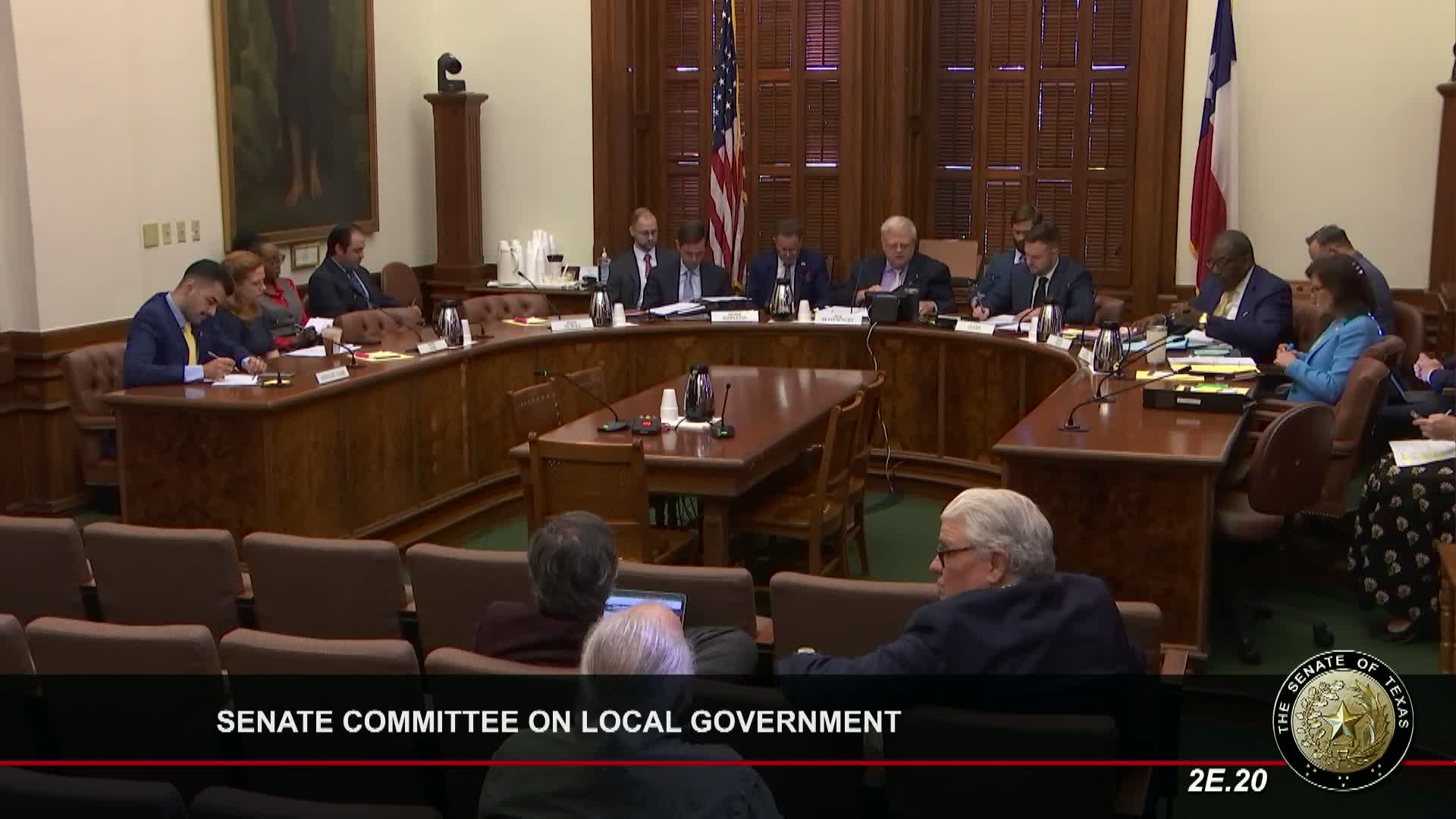Committee adopts substitute on receivership and sale of abandoned municipal parcels; sponsor cites very low assessed values
Get AI-powered insights, summaries, and transcripts
Subscribe
Summary
A committee substitute to Senate Bill 1,579, concerning appointment of receivers and sale or acquisition of certain abandoned, unoccupied and undeveloped parcels in some municipalities, was adopted and reported out of committee. Committee discussion noted the limited effectiveness of tax enforcement on very low-value parcels.
The Senate Committee on Local Government adopted a committee substitute to Senate Bill 1,579 on Oct. 12 and reported that substitute to the full Senate with a recommendation that it pass and be printed.
Sponsor summary in committee: The bill addresses the appointment of a receiver for, and sale or acquisition of, certain parcels of land that are abandoned, unoccupied and undeveloped in certain municipalities. Committee members and staff recounted an investigation showing some of the affected parcels have extremely low appraisals—examples cited in committee suggested annual property taxes on such parcels can be roughly $10—making ordinary tax-collection mechanisms ineffective as a path to resolving derelict parcels.
Why it matters: The substitute would provide municipalities and courts with an additional statutory path—through receivership—to address abandoned and undeveloped parcels that otherwise remain off the market and can create blight or administrative burdens for local governments.
Committee discussion and context
The committee discussed the practical limits of tax enforcement for parcels with very low assessed value; the record notes the sponsor and committee members reviewed options and investigations prior to voting. The substitute was described as intended to enable disposition options where tax-foreclosure or other standard remedies were inadequate due to low assessed value or unclear ownership.
Formal action
The committee adopted the committee substitute and reported it to the full Senate with a recommendation that it pass and be printed; the hearing record shows the roll call recorded five ayes and no nays. The committee also recommended the committee substitute for placement on the local and uncontested calendar.
What the record does not show
The committee transcript summarizes the substitute’s purpose but does not provide the full statutory language, implementation details, or a quantified estimate of the number of parcels affected. The transcript also does not specify the precise legal standards or court procedures that would govern a receiver appointment—those details will be clear once the substitute text is published.
